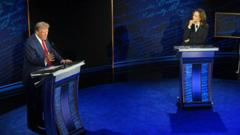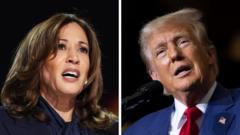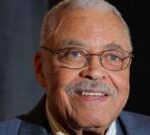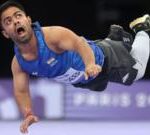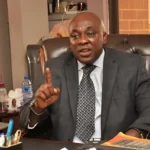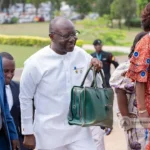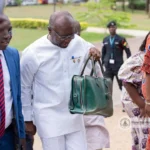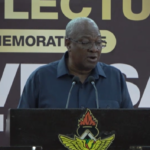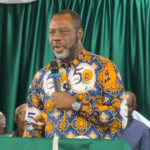American presidential debates aren’t won on policy.
I’ve covered six US presidential elections and have never seen a debate where one candidate emerged as the winner because they made an outstanding policy proposal.
Sure, the ABC News moderators at Tuesday’s debate will ask Donald Trump and Kamala Harris earnest questions about tax cuts and foreign affairs.
But what viewers always focus on are the moments where one candidate has a zinger of a line, or somehow unnerves their opponent, or simply seems more in control.
This is perhaps why an adviser to Trump tells me the former president hasn’t spent his prep time brushing up on policy.
Instead, he’s been “fine-tuning the theatrics of his performance”. If there’s one thing that Trump understands well, it’s television audiences.
For Kamala Harris, this poses a problem. It’s hard to become a world class performer in a couple of weeks, and she has not had much rehearsal time for her debut.
Trump has been on a presidential debate stage five times already.
Unlike her opponent, Ms Harris has spent the past week holed up in a Pennsylvania hotel deep in policy books – but her team has also tried to prepare her to win the optics battle too.
The Harris team has reportedly built a mock television stage – fully fitted with a debate podium and proper lighting.
Top advisers are standing-in and playing the role of Trump (with one of them reportedly even dressing in his signature boxy suits and red ties).
All of this is in a bid to get Ms Harris comfortable with the theatre of it all. They’ve also been reviewing hours of video of all those Trump debates, seeing which plays work well against him and which fall flat.
If the vice-president was hoping for a burst of last minute good news to quell any stage fright, she didn’t get it. A New York Times poll this week has rattled Democrats.
The poll showed a neck-and-neck race between the two candidates, but a sizeable share of voters said they didn’t feel they knew enough about Ms Harris.
One Democratic strategist texted to say they are nervous about the debate because they felt Ms Harris was tentative in a recent CNN interview.
Ask any of the Republicans who Trump demolished in the 2016 primary debates and they will surely tell you that “tentative” is not a winning strategy against him.
Since the American public knows far more about Trump than about Ms Harris, the stakes for her seem higher on Tuesday night.
One approach she may take in trying to win this debate will be doing all she can to ensure that Trump loses it. Her team wants to rattle him, to get him to be the most “Trumpian” version of himself.
They hope that if viewers see him behave badly, as he did in a 2020 debate against Joe Biden, it will cost him support.
I’m told Ms Harris may use trigger words like “old” (old ideas, old story) and “small” (small thinking, small beliefs) as a way to needle him on the basis that Trump is conscious of being the older candidate, and references to size seem to irritate him.
But goading him into rude interruptions will be difficult in this debate, because the candidates’ microphones will be muted when it’s not their turn to speak.
Until we see what happens on that stage, it’s hard to determine what a win for either candidate looks like. Debates are unpredictable things. Just ask Mr Biden.
North America correspondent Anthony Zurcher makes sense of the race for the White House in his weekly US Election Unspun newsletter. Readers in the UK can sign up here. Those outside the UK can sign up here.

